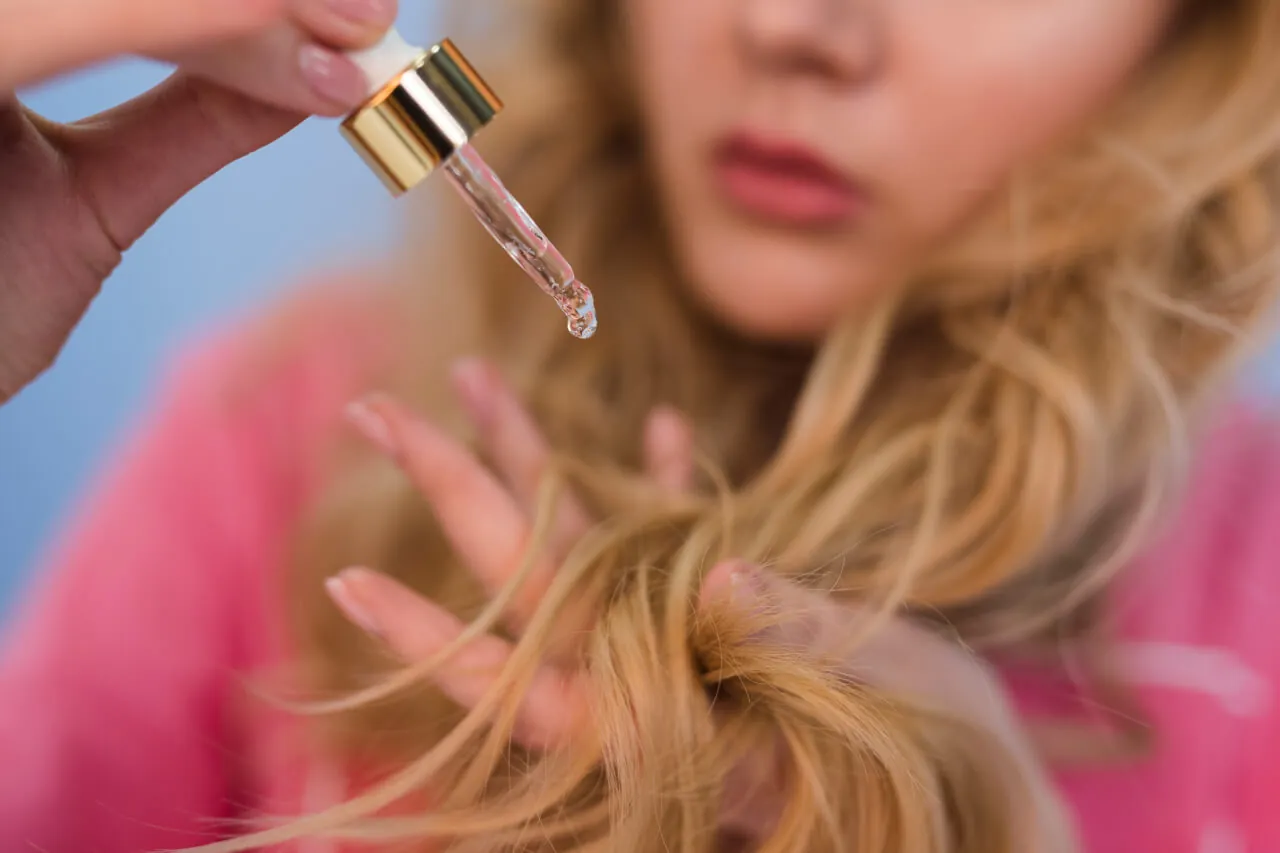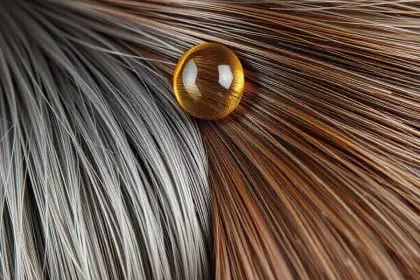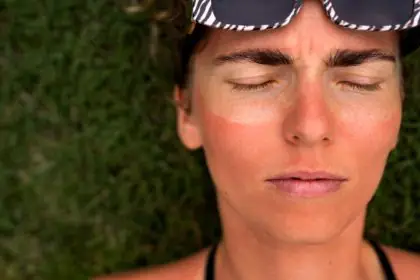In the pursuit of luscious locks and a vibrant mane, the importance of keeping your hair hydrated cannot be overstated.
As we navigate the diverse elements our hair faces daily, from environmental stressors to styling routines, the need to prioritize and maintain optimal hydration levels becomes paramount for hair health.
In this comprehensive guide, we delve deep into the realm of hair care, focusing explicitly on the key factor that can make or break your tresses: maintaining hair hydrated.
Our hair, much like a delicate ecosystem, thrives when nurtured with proper hydration.
The term “hair hydrated” is not merely a catchy phrase but a fundamental concept that encapsulates the essence of hair vitality.
Picture this: hydrated hair is akin to a flourishing garden, where each strand is a vibrant bloom, showcasing its beauty and strength.
In contrast, dehydrated hair mirrors a neglected landscape, with dryness and brittleness overshadowing its potential radiance.
In this article, we unveil seven essential tips, each meticulously crafted to empower you with the knowledge and practices necessary to keep your hair hydrated.
From understanding the significance of hydration to practical steps that seamlessly integrate into your daily routine, our goal is to equip you with the tools needed to transform your hair into a beacon of health and radiance.
Embark on this journey with us as we explore the intricate dance between your hair and hydration.
Uncover the secrets of identifying dehydrated hair, discover the transformative power of water, and learn about the magic ingredients that can breathe life into your locks.
Whether you’re a seasoned hair enthusiast or someone just beginning to unravel the mysteries of hair care, this article is your comprehensive guide to unlocking the full potential of keeping your hair hydrated.
Embrace the transformative journey towards healthier, more radiant hair that begins with the simple yet powerful act of ensuring your hair stays adequately and consistently hydrated.
Understanding Winter Hair Woes
Before we jump into the solutions, let’s understand the specific challenges winter poses to our hair.
The combination of cold outdoor air and indoor heating can lead to a lack of moisture in the air, causing the hair to become dry and static.
Additionally, frequent temperature changes, such as going from the cold outdoors to heated interiors, can contribute to hair damage.
The key is to counteract these effects with a targeted approach to winter hair care.
Adjusting Your Hair Care Routine:
1.Gentle Cleansing
During winter, it’s essential to choose a sulfate-free and moisturizing shampoo to keep your hair hydrated.
Sulfates can strip away natural oils, leaving your hair more vulnerable to dryness.
Opt for a hydrating shampoo that cleanses without compromising moisture.
2. Deep Conditioning
Integrate deep conditioning treatments into your routine for a hydrated hair.
Consider using a hair mask or conditioner with ingredients like argan oil, shea butter, or coconut oil.
These ingredients provide intense hydration and nourishment, helping to combat winter dryness.
3. Limiting Heat Styling
Reduce the frequency of heat styling during winter.
Excessive use of styling tools can contribute to moisture loss.
Embrace your natural texture, or opt for heatless styling methods to give your hair a break, retain its natural moisture and to keep your hair hydrated..
4. Cooler Water for Washing
While hot showers are tempting in cold weather, they can contribute to dry hair.
Wash your hair with lukewarm or cool water to seal the hair cuticles and lock in moisture.
This small adjustment can make a significant difference in maintaining hydration.
5. Regular Trims
Schedule regular trims to get rid of any split ends.
Dry winter air can exacerbate split ends, leading to further damage if not addressed promptly.
Keeping your hair trimmed helps maintain its health and prevent breakage.
6. Commit to a Weekly Hair Mask
Just like weekly face masks are essential for healthy skin, weekly hair masks can make a significant difference when it comes to dry, damaged hair.
They can reverse the effects of dryness while making sure your hair is protected at an optimal level all year round. Hair masks are quick and easy to use.
They are packed with tons of hair health benefits and are effective in under 20-minutes. Hair masks offer benefits like softening, hydrating and adding shine.
7. Avoid Frequent Hair Washes
If you’re someone who washes their hair every day, it’s time to switch things up.
Over-washing your hair will strip it of natural oils that help to keep hair moisturized and protected.
This is especially bad in the winter when those oils are much needed.
Try extending the time between your washes as much as possible.
If you typically wash your hair every day then switch to every other day.
If you find your hair is still very dry, try every three days.
Another way to help extend the time between washes is to use dry shampoo.
Dry shampoo opens up the hair shaft and brings life back to your hairstyle.
It will also keep your hair smelling and looking fresh.
Ingredients to Keep Your Winter Hair Hydrated
Argan Oil
Known as “liquid gold,” argan oil is rich in vitamins and antioxidants.
Applying a few drops to your hair can provide deep hydration and restore shine.
It absorbs quickly without leaving a greasy residue.
Shea Butter
Shea butter is a natural emollient that seals moisture into the hair shaft.
Look for hair products containing shea butter or use it as a standalone treatment for an extra boost of hydration.
Coconut Oil
Coconut oil is a versatile and readily available remedy for dry hair.
Apply warm coconut oil to your hair and scalp, leave it on for a few hours or overnight, and then wash it out.
This nourishing treatment can help combat winter dryness and keep your hair hydrated.
Hyaluronic Acid
While often associated with skincare, hyaluronic acid is making its way into hair care products.
It’s a powerful hydrating ingredient that attracts and retains moisture, keeping your hair hydrated and supple.
Aloe Vera
Aloe vera is known for its soothing and hydrating properties.
Use aloe vera gel or aloe vera-infused hair products to add moisture and alleviate any scalp dryness or irritation.
Protective Styling for Winter
Hats and Scarves
Protect your hair from harsh winter elements by wearing hats and scarves.
These accessories not only keep you warm but also shield your hair from cold winds and prevent moisture loss.
Silk or Satin Pillowcases
Swap your cotton pillowcases for silk or satin ones.
These smoother fabrics reduce friction, preventing breakage and helping your hair retain moisture while you sleep.
Loose Hairstyles
Tight hairstyles can stress the hair shaft and lead to breakage.
Opt for loose hairstyles that allow your hair to breathe and maintain its natural moisture balance.
Additional Tips for Winter Hair Care
Stay Hydrated
Hydrated hair starts from within.
Ensure you’re drinking enough water throughout the day to support overall hair health.
Humidifier Use
Consider using a humidifier in your home, especially in your bedroom.
This helps maintain a more humid environment, preventing the air from becoming too dry and benefiting your hair.
Regular Scalp Massage
Stimulate blood circulation and promote natural oil production by incorporating regular scalp massages into your routine.
Use a nourishing oil like jojoba or almond oil for added benefits.
Protein Treatments
Periodic protein treatments can strengthen your hair and prevent moisture loss.
Look for products containing hydrolyzed keratin or collagen for an extra boost.
Tips to keep your hair hydrated and healthy in cold weather
In the winter months, the combination of cold outdoor air and dry indoor heating poses a threat to the moisture levels in your hair, making it susceptible to dryness and breakage.
To counteract these effects, it is crucial to adopt measures that promote hair health. Begin by steering clear of hot water when washing your hair, as it tends to exacerbate dryness.
Opt for lukewarm water instead, as it aids in preserving the natural oils in your hair.
Additionally, reduce the use of heat styling tools, allowing your hair a respite from excessive heat exposure.
Embrace your natural hair texture or experiment with heatless hairstyles like braids or buns.
Ensuring Hair Moisture Throughout Winter
Hydration emerges as a paramount factor in the quest for maintaining vibrant hair during the winter.
An effective strategy for preserving moisture is the incorporation of deep conditioning treatments or hair masks into your routine.
These specially formulated products deliver intense hydration and nourishment tailored to your hair’s needs.
Select a mask compatible with your hair type and apply it weekly or as required to keep your hair hydrated.
Another beneficial tip is to integrate hair oils, such as argan oil or coconut oil, into your hair care regimen.
These oils contribute to locking in moisture and preventing dryness.
A simple application of a few drops to the ends of your hair, followed by combing to distribute the oil evenly, can work wonders.
Safeguarding Your Hair Against Winter Elements
Beyond moisturizing, safeguarding your hair from the harsh winter elements is equally vital.
One effective measure is to don a hat or scarf when venturing outdoors, providing a protective barrier against the cold air and helping retain moisture.
Additionally, exercise caution when brushing or combing your hair, particularly when it’s dry, to minimize breakage.
Opt for a wide-toothed comb or a brush with soft bristles to delicately detangle your hair.
Pay attention to the materials that come into contact with your hair, avoiding rough or abrasive substances that may induce friction and lead to damage.
By implementing these protective strategies, you can fortify your hair against the challenges posed by winter conditions.
Conclusion
In essence, the journey to fabulous hair doesn’t have to be complicated—it’s all about the simple act of keeping your hair hydrated.
These seven essential tips we’ve explored are like your hair’s best friends, each playing a crucial role in maintaining that perfect moisture balance.
So, as you wrap up this read, let’s recap the basics. Hydration isn’t just a beauty trend; it’s a fundamental principle for healthy and vibrant hair.
As you incorporate these tips into your routine, think of it as a commitment to the well-being of your locks.
From the importance of water to the wonders of hydrating ingredients, you’re not just following a regimen; you’re creating a lifestyle that revolves around the well-being of your hair.
Imagine your hair as a beautiful garden, and hydration is the daily water it needs to bloom.
With each carefully chosen product and every gentle routine, you’re essentially tending to this garden, ensuring that it thrives and dazzles with its natural brilliance.
In this journey, “hair hydrated” isn’t just a phrase; it’s a mantra, a reminder that simplicity can lead to transformative results.
So, go ahead, embrace these tips, make them a part of your daily rhythm, and watch as your hair responds with newfound radiance.
In closing, let the notion of keeping your hair hydrated be a celebration of self-care.
Your hair is a reflection of your overall health and well-being, and by prioritizing its hydration, you’re not just enhancing its appearance—you’re investing in its long-term resilience.
Frequent Asked Questions (FAQs)
Why is keeping my hair hydrated important?
Maintaining hair hydration is crucial because it helps prevent dryness and damage, giving your locks a healthy and vibrant appearance.
How can I tell if my hair is dehydrated?
Dehydrated hair often appears dull, feels brittle, and may have split ends.
If you notice these signs, it’s time to focus on keeping your hair hydrated.
What role does water play in keeping my hair hydrated?
Water is essential for hydrating your hair from the inside out.
Make sure to stay well-hydrated internally, and consider using water-based hair products for external moisture.
Can overwashing my hair contribute to dehydration?
Yes, frequent washing can strip your hair of its natural oils, leading to dehydration.
Opt for a gentle washing routine and use hydrating shampoos and conditioners.
Are there specific ingredients I should look for in hair products to keep my hair hydrated?
Absolutely! Look for products containing ingredients like aloe vera, glycerin, and hyaluronic acid—they work wonders in maintaining optimal hair hydration levels.
How often should I use deep conditioning treatments to keep my hair hydrated?
Incorporate deep conditioning into your routine at least once a week.
This helps restore moisture and keeps your hair hydrated, especially if you expose it to heat or styling regularly.





